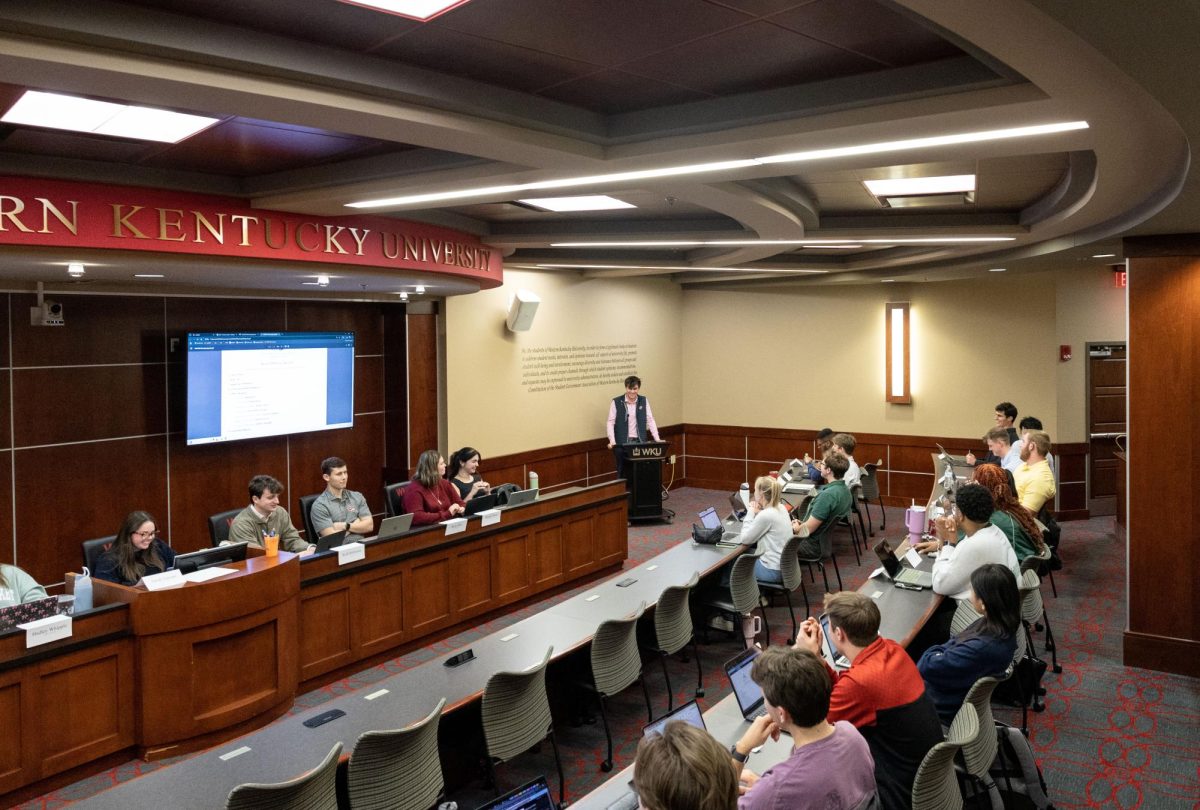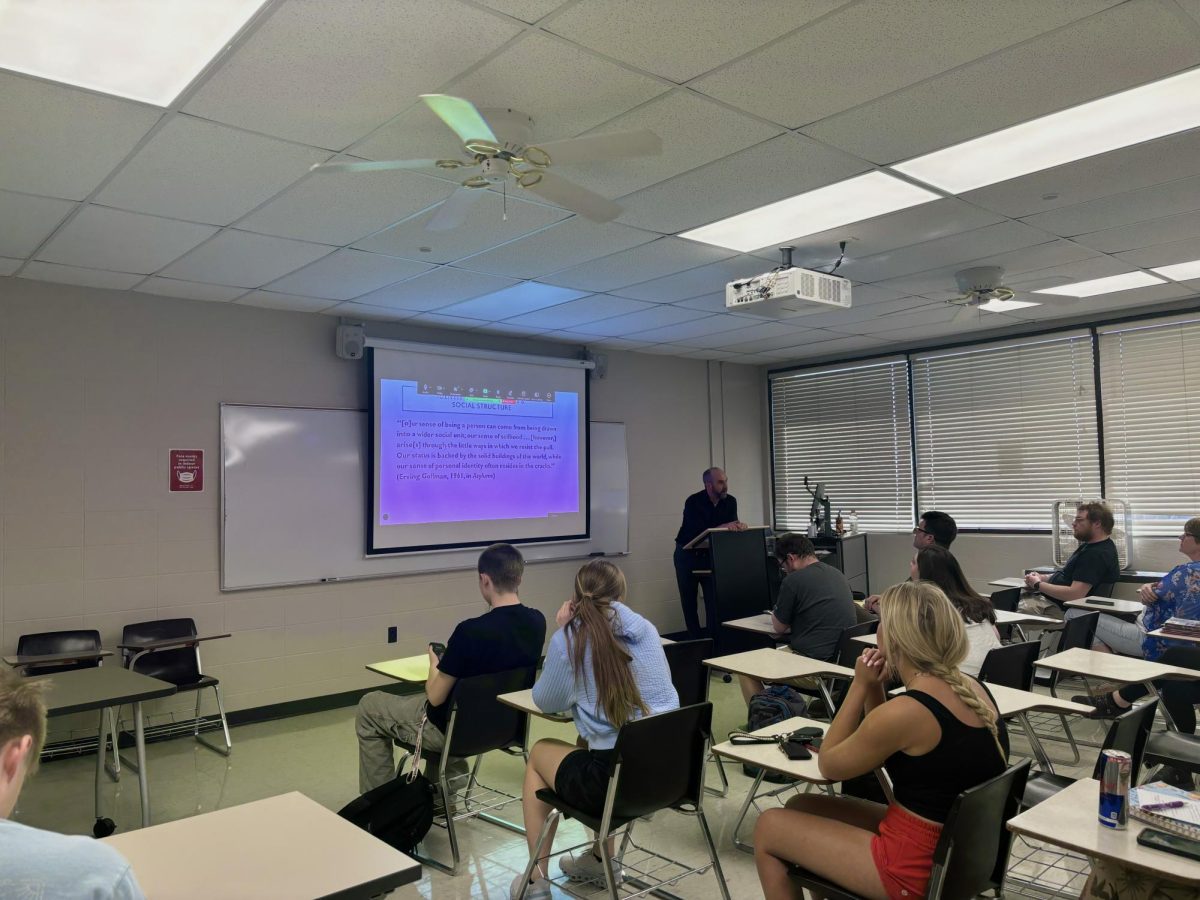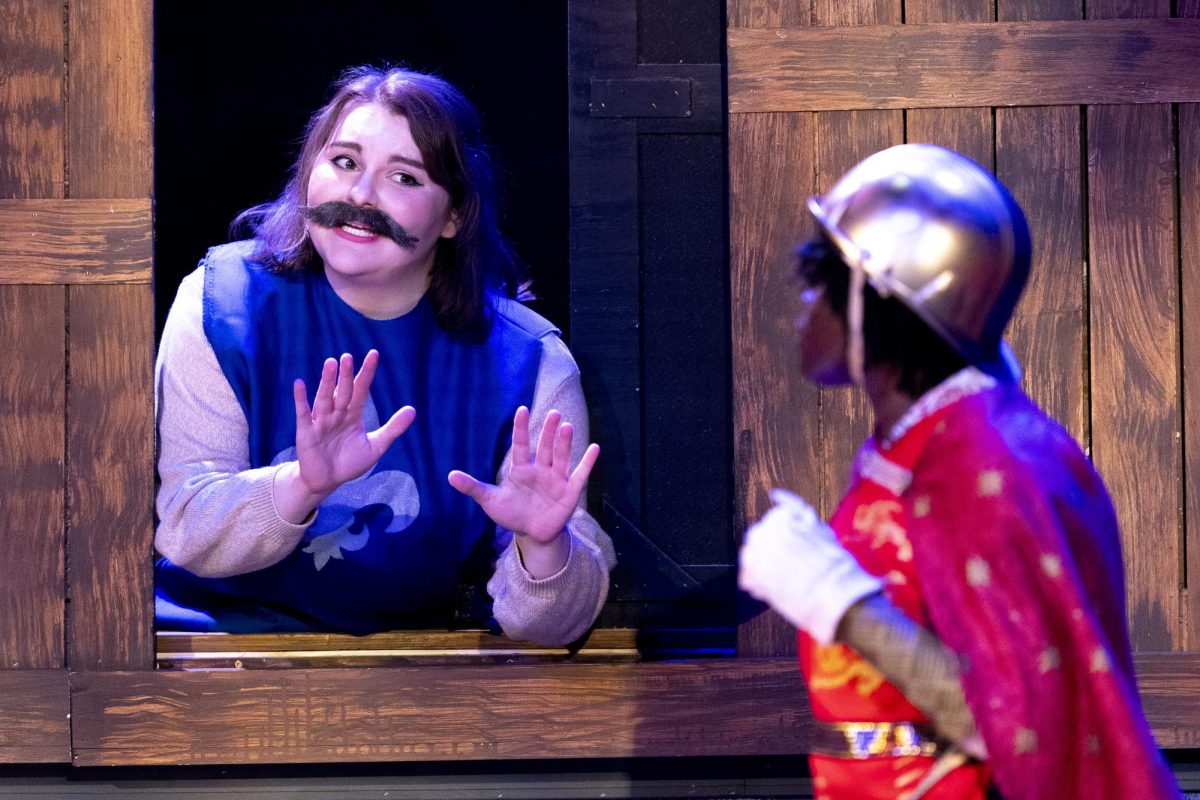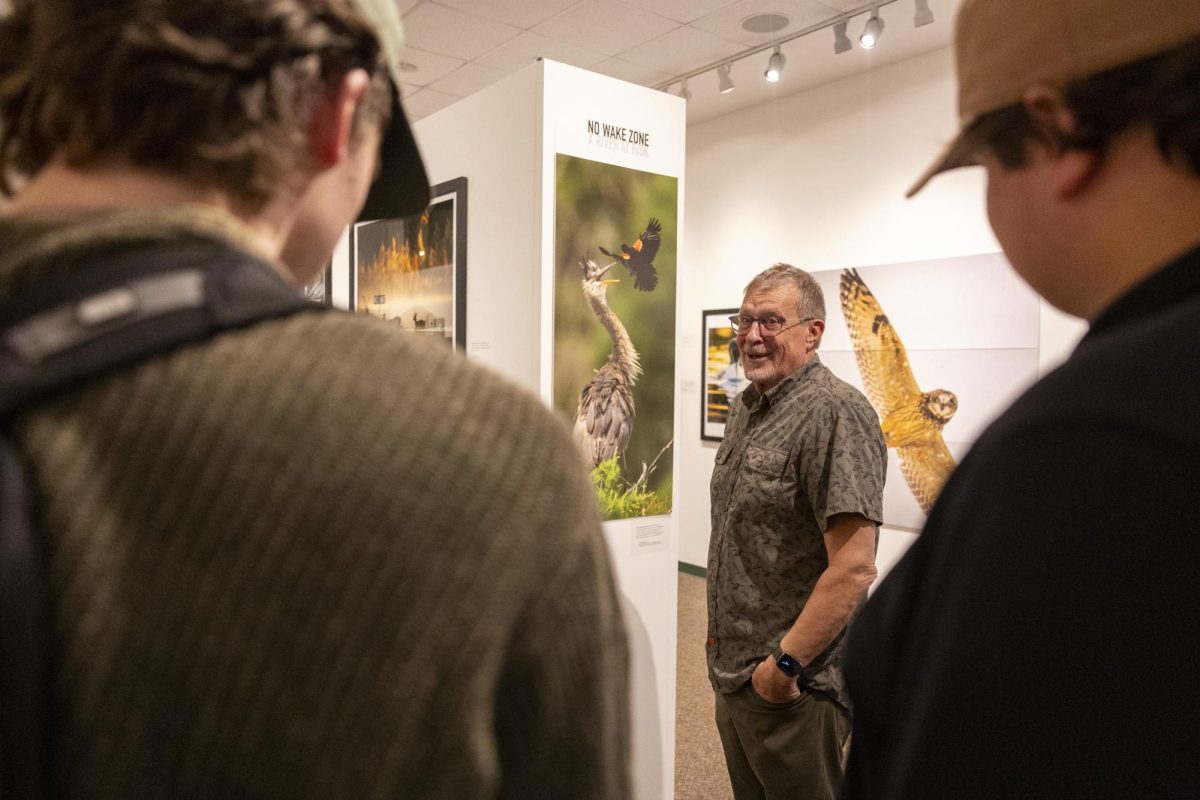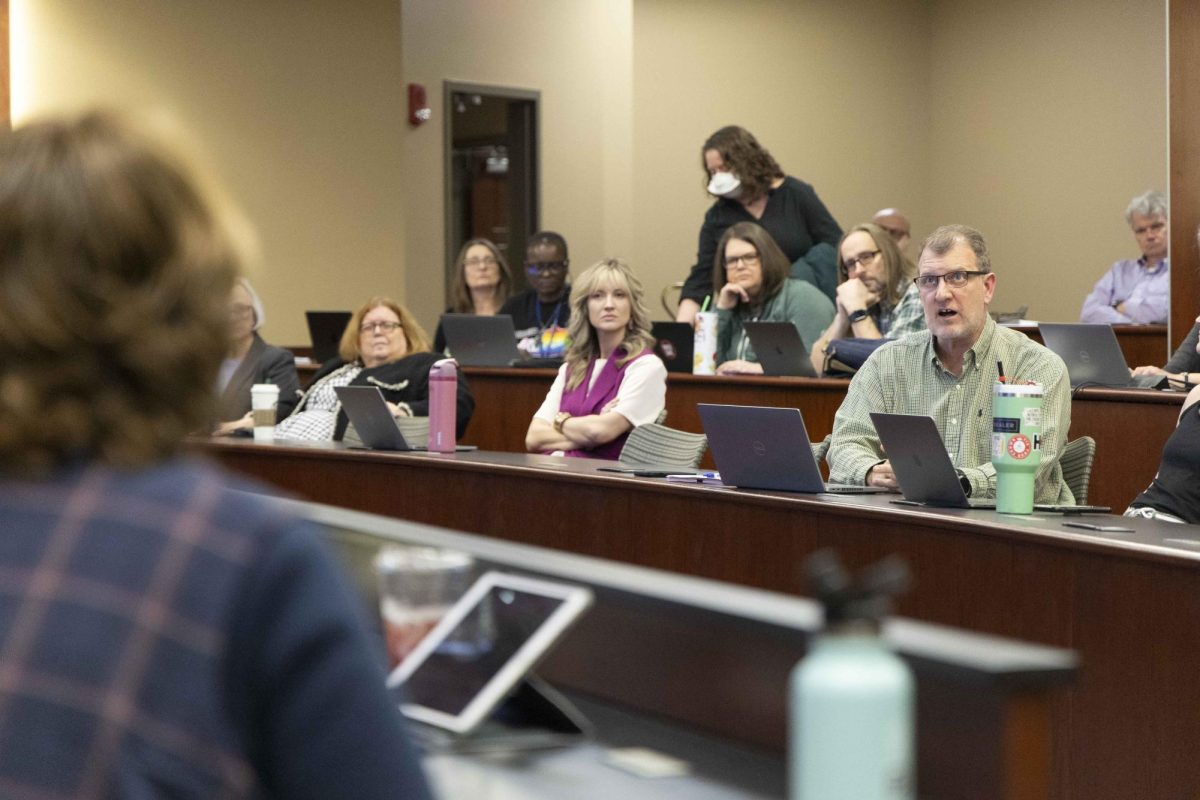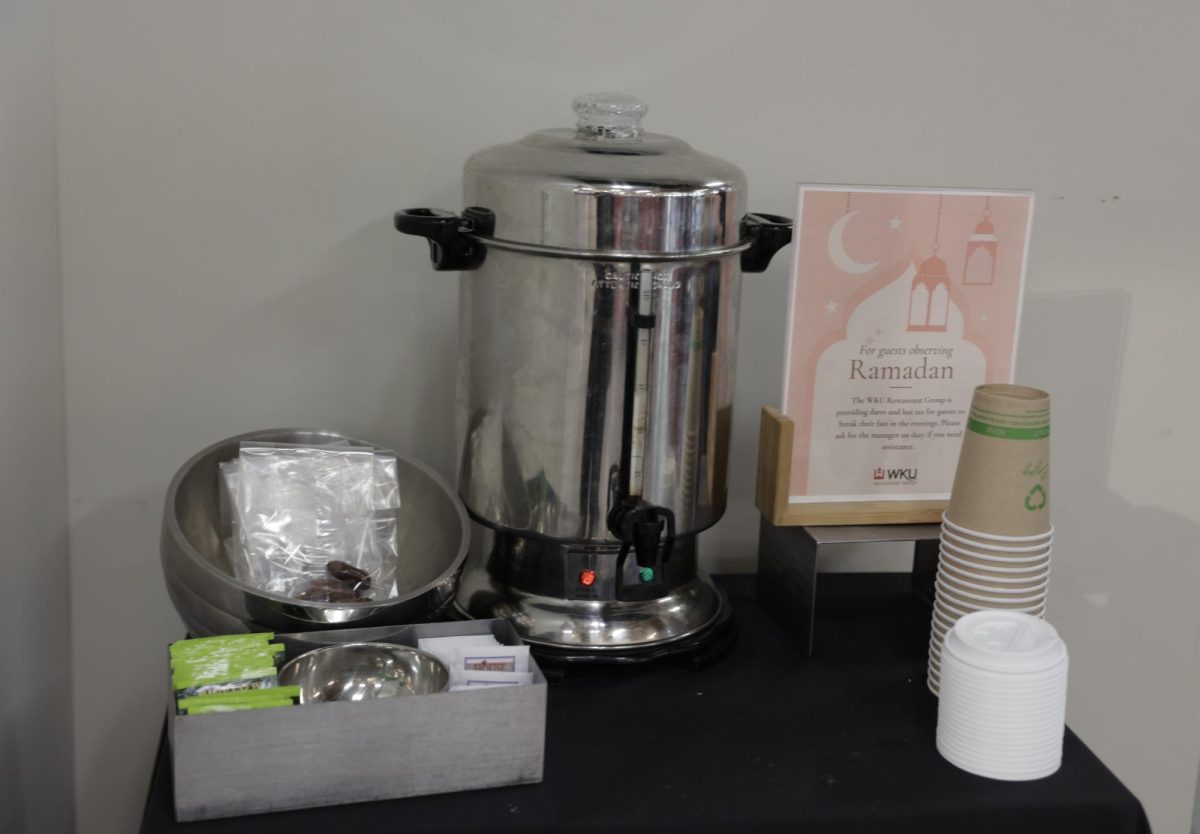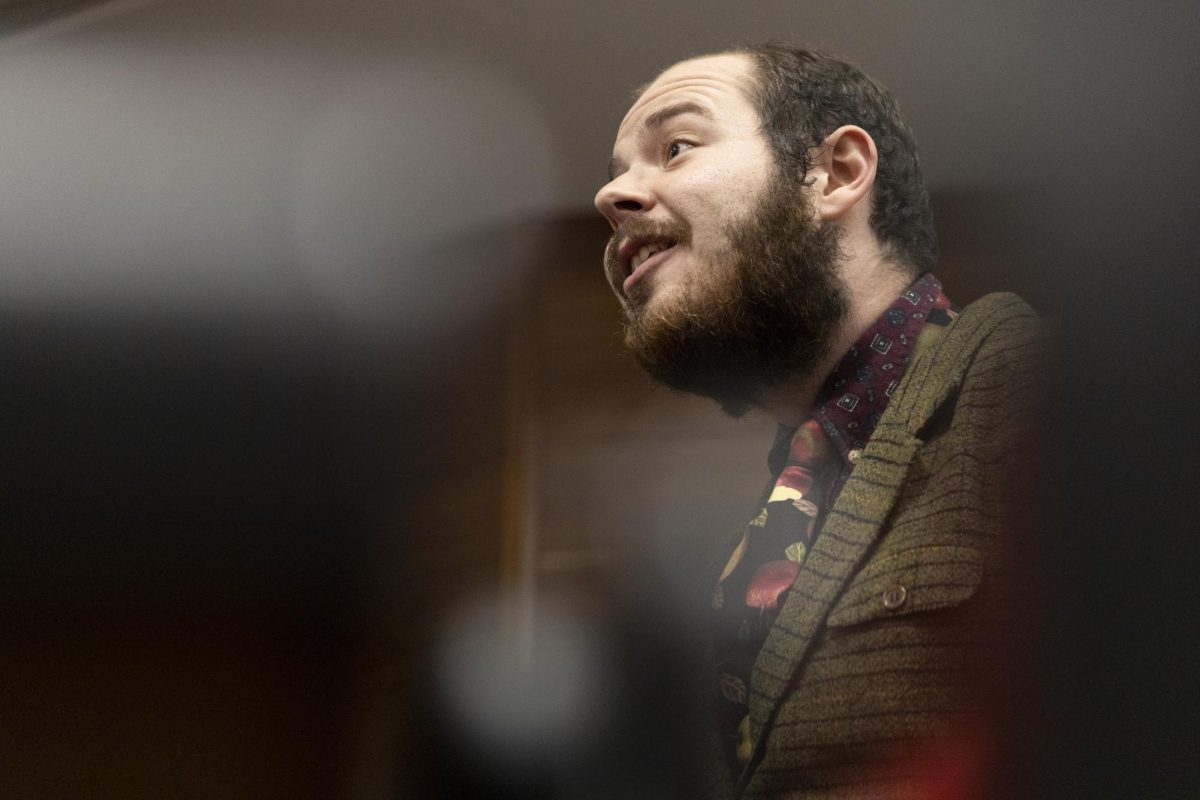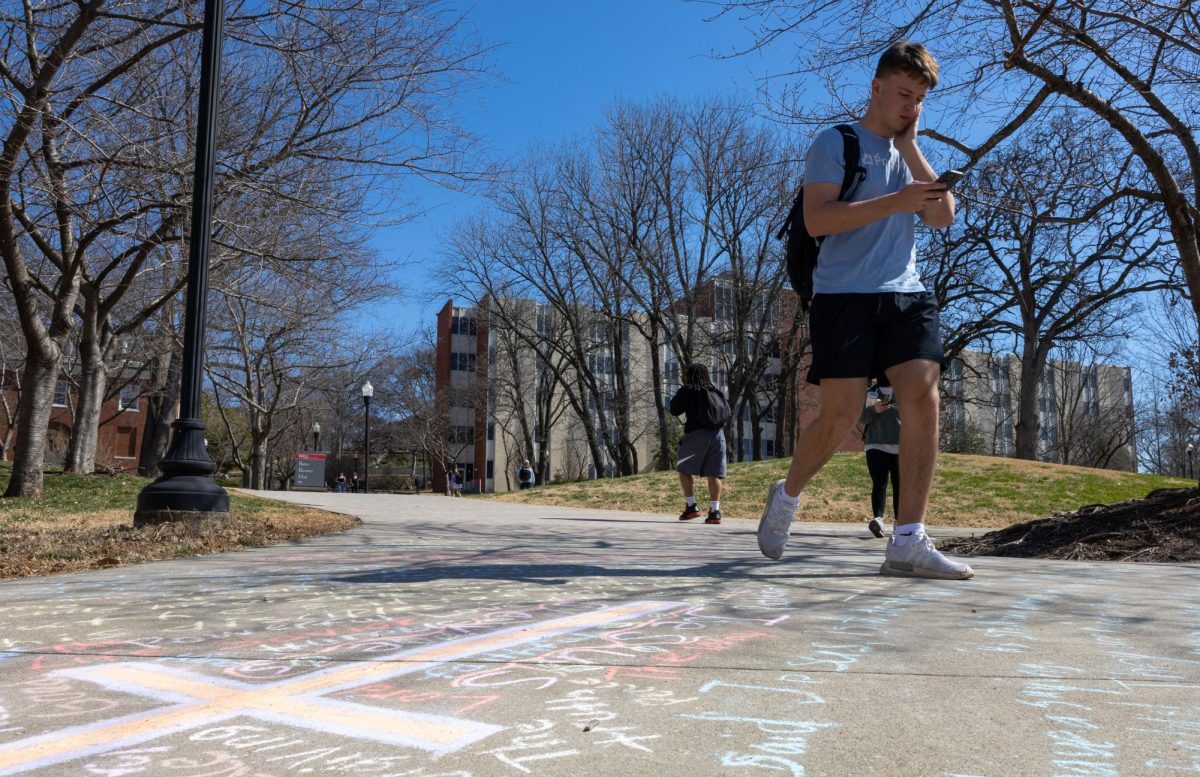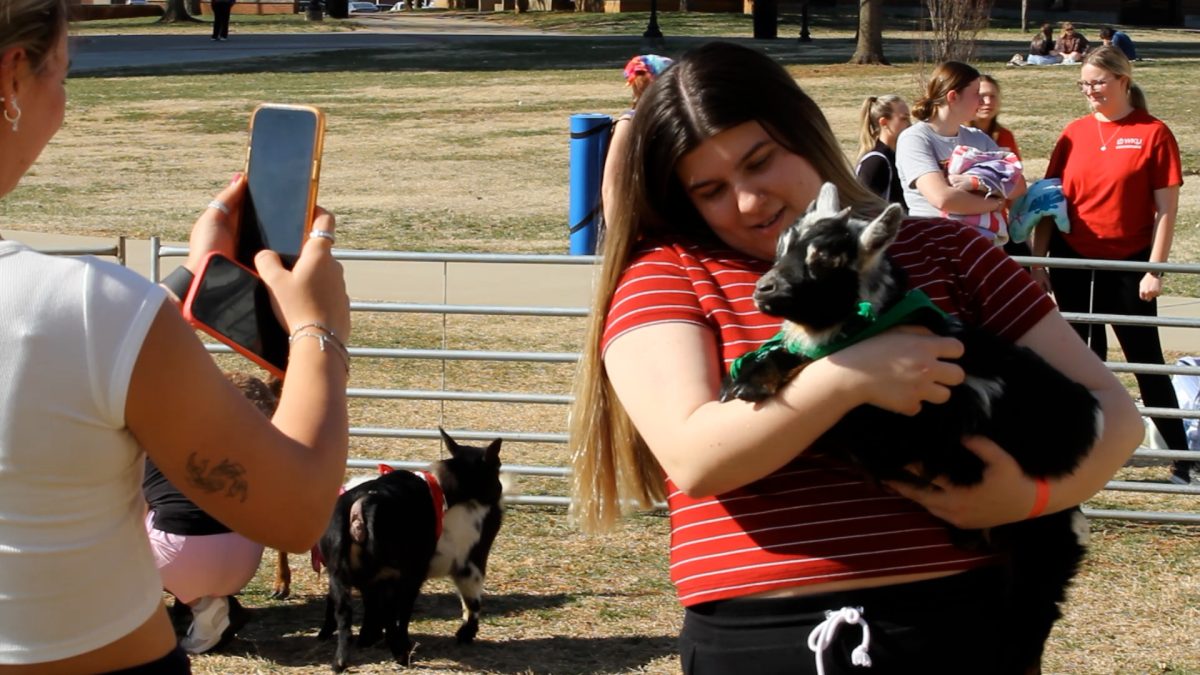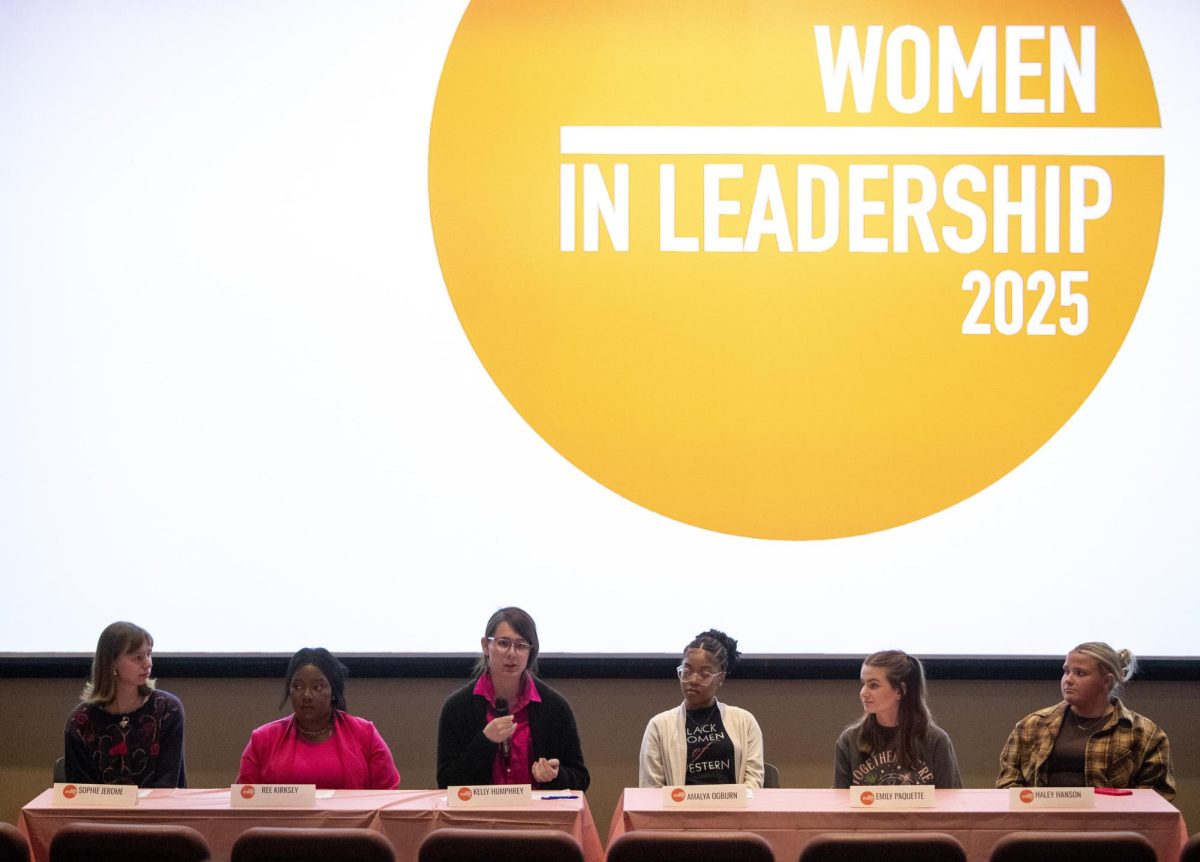Wesley Petrouske, guest speaker for the WKU American Institute of Architectural Students and founder of Architectural Environments, already had a job when a firm reached out to him with an offer. He said he declined but got a second call in the months to follow. This time, the company asked Petrouske what it needed to do to get him to work there, he said.
“I don’t want to do medical projects in any way, shape, or form. I want to do the fun stuff,” he said, remembering his then new contract.
Now, years later, Petrouske has his own architectural company based in Nashville, Tennessee. Architectural Environments has been in business since 1991, and 85% of its work is medical, Petrouske said in his talk for AIAS on Tuesday, Oct. 17.
“From day one where I started to where I ended up, (it) was always ‘yeah, I’m not doing that, I’m doing this;’ then an opportunity presents itself, and I keep my eyes and ears open to see where this goes – if I don’t like it, I can always switch to do something different,” Petrouske said
Following his speech, students had the opportunity to ask Petrouske a number of questions. Most common inquiries revolved around the hiring process. First, Petrouske stressed the importance of soft skills – his “worst hire” completed a degree in an Ivy League school but “had no social skills,” he said.
Next, Petrouske said personality plays an integral role in the interview process. He said his ultimate goal as an employer is to make sure that new hires fit in with the team.
“I am going to assume if you graduate from a university, you know your way around designing a project or whatever it is you’ve been doing. I want to know who you are and what you bring to the table for my company,” Petrouske said. “What I’m looking for are the things that you probably don’t know I am looking at.”
That’s why Petrouske recommended searching for deeper meanings within simple interview questions, such as “tell me about yourself” or “talk about your biggest mess-up,” encouraging students to “listen to words that are not being spoken.”
At the same time, Petrouske said it is important to remain true to oneself in a job interview and “come across with some confidence.”
He said people in the business often consult each other, so the tips he was sharing represent a “collective point of view.” Petrouske said it is also useful to remember that business owners, like himself, are always on the lookout for new employees.
At least 75% of his company’s staff, Petrouske said, were people that he hired when he was not actively recruiting. Alternatively, sometimes business owners pass on recommendations on who to hire, he said.
He concluded that when applying for jobs, what matters most is staying authentic and leveraging strengths.
“Don’t try to memorize the dos and don’ts; keep an eye on the main thing that you want to achieve, which is (…) when all is said and done, you want to walk away from the table fairly comfortable that the person that’s interviewing you has a good impression of who you are as a person,” Petrouske said.
Kimberly Lanham, president of AIAS, said the organization tries to invite a new speaker at least once a semester. Sometimes, AIAS takes students on “firm crawls” to bigger cities, like Louisville, Kentucky. This allows students to explore different companies, see what they do and make valuable connections, Lanham said.
News Reporter Mariia Novoselia can be reached at mariia.novoselia765@topper.wku.edu




